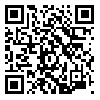Volume 2, Issue 1 (2-2014)
J. Pediatr. Rev 2014, 2(1): 47-54 |
Back to browse issues page
1- Thalassemia Research Center, Mazandaran University of Medical Sciences
2- Traditional and Complementary Medicine Research Center, Mazandaran University of Medical Sciences , mprabie@yahoo.com
2- Traditional and Complementary Medicine Research Center, Mazandaran University of Medical Sciences , mprabie@yahoo.com
Abstract: (15784 Views)
Objective: To review the current situation regarding prenatal diagnosis (PND) in Islamic countries.
Methods: A descriptive study (narrative review) has been done based on the available data in formal international and national published documents in 2013. The sources were papers, websites and electronic books. Time limitation of searches has started 20 years ago. The main languages were English and Persian.
Results: Frothy seven nations were officially referred as Islamic since more than 50% of the citizens are Muslims. The holy Qur'an and Islamic traditions (Shari'aht) are the core of the civil laws, however, the legal grounds for prenatal diagnosis differ in Islamic countries. The main ground is the endangerment of a mother's life, however, severe suffering of parents (Osr va Haraj) is also considered in the Islamic Republic of Iran. Some other important issues such as pregnancies as a result of rape should be discussed more in some Islamic countries. Many “hard to treat diseases” such as chromosomal disorders, major hemoglobinopathies, inborn error of metabolism, Duchene muscular dystrophy, spinal muscular dystrophy are being diagnosed early in embryonic period that medical abortion is advisable.
Conclusion: Prenatal diagnosis is an acceptable practice in both religious and secular governments in the so-called Islamic countries.
Type of Study: Narrative Review |
Received: 2013/10/19 | Accepted: 2014/01/7 | Published: 2014/01/7
Received: 2013/10/19 | Accepted: 2014/01/7 | Published: 2014/01/7
| Rights and permissions | |
 |
This work is licensed under a Creative Commons Attribution-NonCommercial 4.0 International License. |


